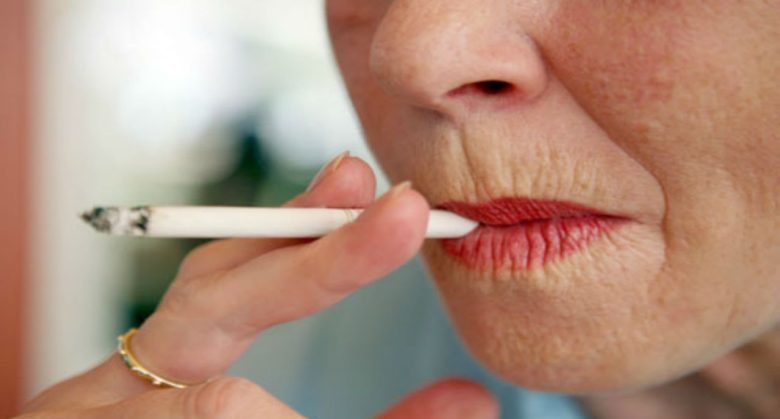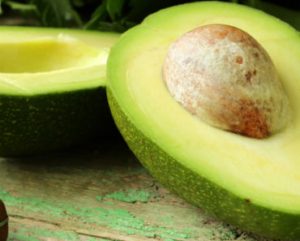[nextpage]
You may brush after every meal. You may eat healthy. You may use the most expensive toothbrush on the market. And you may be ruining your teeth. Read to see if your good habits are actually not so good…
[/nextpage]
[nextpage]
1. Brushing Too Much

You might think that it’s good to brush your teeth after every meal. This is not always the case. Brushing too frequently can actually wear away the outer layer of your tooth, called the enamel. Although it is the toughest layer of skin on your body, it is thin and irreplaceable. If you wear it down, it will leave your teeth susceptible to sensitivity, pain, and decay. It can also cause your gumline to recede. Brushing once or twice each day is sufficient, and the best times are in the morning and before bed. Overbrushing is especially dangerous if you’re using the wrong toothbrush. Read on…
[/nextpage]
[nextpage]
2. Wrong Toothbrush

Toothbrush bristles are made of nylon. A machine cuts the bristles to make them equal in height, but this leaves the tips of the bristles jagged and unsafe for teeth. Of course, this is a microscopic issue but it can lead to big problems. So another machine rounds the tips, making the bristles safe for brushing. Some companies do a better job of rounding than others. Using a poorly-rounded tip can damage your teeth. Ask your dentist for a recommendation or look for the American Dental Association’s (ADA) Seal of Approval on the package.
[/nextpage]
[nextpage]
3. Holding On Too Long

Ideally, you should replace your toothbrush five or six times a year. If you are like most people, and instead wait to break out that new toothbrush only after your current bristles begin to splay, you’ve waited too long. And you may have worn away some of the structure of your teeth. Once the bristles start to separate, the tips become jagged, kind of like how they were before being rounded in the manufacturing process you just read about. You need to replace your brush before the bristles start to splay.
[/nextpage]
[nextpage]
4. Brushing Too Soon

If you eat or drink something you know is bad for your teeth, and then you run to brush right after, you could be doing more damage than good to your teeth. Believe it or not, dentists recommend waiting at least 30 minutes to brush your teeth after eating sugary candy, drinking alcohol or eating acidic fruit. Brushing too soon after enjoying these can compound the effect of the acid that has already softened the enamel. Waiting half an hour gives your saliva time to neutralize the acidity.
[/nextpage]
[nextpage]
5. Chewing Smokeless Tobacco

You might be doing your lungs a favor by choosing the smokeless type, but you’re not helping your teeth any. The sugar added to smokeless tobacco to enhance its flavor can wear down your enamel and lead to tooth decay. That’s just the beginning. Resting a pinch of chew next to your gums can damage your gums and pull them away from your teeth. This can lead to greater sensitivity. It also exposes more of the enamel of your teeth allowing more surface area to be vulnerable to decay. The tobacco can even cause the bone around the tooth to erode. If this happens, expect a visit from the tooth fairy.
[/nextpage]
[nextpage]
6. Chomping On Ice

Ice is crunchy. It’s healthy. And it hydrates. But ice hammers your teeth and can wear down the protective enamel leaving your teeth more sensitive to hot and cold foods. Wearing down the enamel also leaves your teeth vulnerable to decay. Bite the wrong way and ice can crack your teeth and damage your gums. Ouch! Finally, ice can wreak havoc on veneers and fillings, sending you back to the dentist, who, by the way, would recommend sucking on ice slivers—or munching on baby carrots if you crave the crunch. If you do really desire to chew ice, it could be linked to an iron deficiency, so talk to your dentist.
[/nextpage]
[nextpage]
7. Bedtime Bottles

If that last thing in your child’s mouth before going to bed is a drink other than water, you might be hurting his or her teeth. Juice and milk (and of course you’re not letting them drink soda! But no judgments.) have sugar, and that sugar lingers in the mouth…on and in-between teeth. This can lead to decay, especially if this nightly drink is habitual. If your child insists on a beverage before bedtime, or if he or she wants one throughout the night, make sure it’s water. If the drink comes before their nightly tooth-brushing session, then juice or milk is okay. You just might have to worry about a midnight run to the bathroom…or worse!
[/nextpage]
[nextpage]
8. Coffee

The baby gets the bedtime bottle; you get the morning mug. Everybody knows that coffee stains teeth. That’s just one problem, and it’s because of a polyphenol in the beverage called tannins. This compound causes colors to more readily stick to your teeth. Coffee, therefore, leaves your teeth with a nice yellow hue. The bigger problem with coffee comes from the caffeine. Drinking large quantities of coffee with caffeine can degrade the enamel on your teeth. Once this happens, your teeth are more susceptible to decay. If you must have that cup (and in all likelihood, you must have that cup), you can drink through a straw or rinse your mouth with water when you finish that last drop. Definitely try to avoid sipping your joe for extended periods.
[/nextpage]
[nextpage]
9. Tongue Piercing

This may come as a shock, but tongue piercings can chip teeth. The biggest culprit is the barbell-type. A study found that the shorter the stem (the long, straight bar that impales the tongue) the more likely damage to teeth occurred. This counter-intuitive chipping is because shorter stems make it easier it to fit the endcaps between teeth…leading to chipping them. Another problem: people with this type of tongue piercing fall into the habit of biting the barbell. This = chipping. Longer stems tend to cause gum damage because they can reach the gums unlike their shorter counterparts. The result: Looking cool now may lead to dentures like grandma has later.
[/nextpage]
[nextpage]
10. Drinking Wine

A glass of wine can calm the nerves, help cholesterol and aid the circulatory system. But nothing is for free, right? Wine contains acid, and it can wear down the enamel over time. When this happens, the teeth-strengthening mineral, calcium, can leach out. Once the enamel starts to wear away, nerves lie closer to the surface and this results in greater sensitivity…and pain. White wine was shown to be worse for teeth than red, but wine is not the only drink that hurts teeth. Alcoholic drinks, in general, are highly acidic. The worst of all alcoholic beverages for your teeth are dry, sparkling wines.
[/nextpage]
[nextpage]
11. Clenching

Clenching and grinding, known as bruxism, happens while you are sleeping. So it’s not really a habit because there is no conscious control over the action. But there are things you can do while you’re awake to prevent this nighttime problem that can lead to eroded enamel or even exposed dentin, fractured teeth and flattened cusps. Because bruxism has been linked to stress and anxiety, you can learn how to relax. Meditate, go for a walk, employ mindfulness. These are some activities that can calm you. Also, quit activities that have been associated with bruxism: smoking, drinking caffeinated or alcoholic drinks and using drugs of the illegal sort. You can also talk to your dentist about wearing a night mouth guard.
[/nextpage]
[nextpage]
12. Eating Sour Candy

Your enamel is under attack again if you eat candy. It’s because of the sugar, and all candy is packed with the poison. However, one category of candy stands above others as being the most dangerous to tooth enamel: sour candy. The combination of sugar and acid (citric, malic and fumaric) are a double-whammy for the teeth’s outer-covering that offer the difference between enjoyable eating and painful eating, tooth decay and fractures. One study found that sour Mike & Ike’s caused 92% more enamel erosion than regular Mike & Ike’s. If you insist on being a daredevil and going for the sour, avoid keeping it in your mouth too long. This allows the acids more time to attack your teeth.
[/nextpage]
[nextpage]
13. Smoking

It does not matter whether you smoke cigarettes or cigars, this habit takes its toll on teeth. (I won’t even mention your other body parts or your wallet.) Tobacco in the mouth can lead to gum disease by affecting the tissue cells in the gums. This leaves smokers’ gums susceptible to periodontal disease and other infections. It also affects the bone and soft tissue in teeth and can lead to bone loss. This is irreversible, and the bone that is affected is in the jawbone that anchors the teeth. One by one, teeth might start to fall out. Unfortunately, smoking a pipe is not much better.
[/nextpage]
[nextpage]
14. Using Your Teeth-Opener

You might have to sit down for this one. When you use your teeth to open beer bottles or cut wires or tear open plastic containers, you might hurt your teeth. Shocking, I know. The list doesn’t end there. These tricks with your teeth (or displays of being too lazy to walk to get the actual and proper tool) can crack or chip your teeth or knock your jaw out of alignment. This can be annoying and painful. Using your teeth as holders (eg. for screws, nails, pins, etc.) can create circle-shaped holes in your teeth over time. They don’t go away. Your teeth are not a Swiss Army knife and they are not a third hand. Use ‘em for chewin’.
[/nextpage]
[nextpage]
15. Potato Chips

Tooth decay is caused by bacteria that produce acid in your mouth. These bacteria are nourished by carbohydrates, whether from sugar or starch. That is one reason why potato chips make it onto this list. When you chew your chips, they turn into a gooey mess that can find a home between your teeth. If not removed promptly, they make a nice home for bacteria to go to work on your teeth. Don’t worry, you don’t have to give up your chips. Just rinse your mouth well with water when you are finished your snack.
[/nextpage]
[nextpage]
16. Drinking Soda

Sodas contain a whole lot of sugar, and as soon as it enters your mouth, it begins to interact with bacteria to form acid. The acid attacks your teeth. (This is true with sugar-free sodas, too.) Each sip starts a reaction that will continue to do damage for up to 20 minutes. What makes soda stand out among other drinks as teeth-killers is that they’re attack doesn’t stop at the enamel. Soft drinks can also damage the next layer, dentin. Dentists have coined a term for teeth that have been subjected to large quantities of soda: Mountain Dew Mouth. The images are to grotesque to show here. Just choose water.
[Featured Image Credit: speakoutblog.ca]
[/nextpage]




